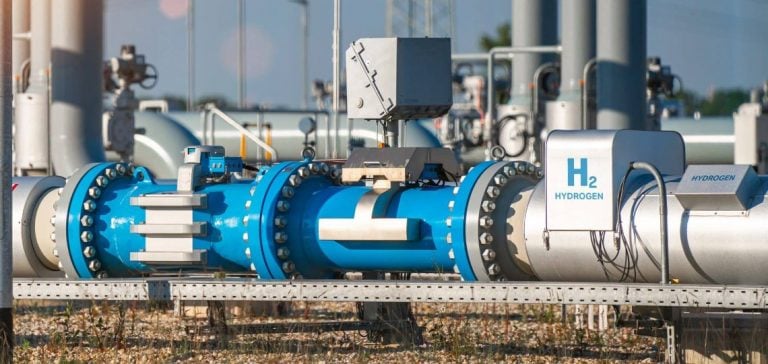A Memorandum of Understanding (MoU) was signed this week between major energy industry players from Europe and Algeria, officially launching feasibility studies for the SoutH2 project. This energy corridor, which is set to transport up to 4 million tonnes of green hydrogen annually to Europe by 2030, is a key component of the European strategy for the energy transition, responding to the current energy crisis.
Key players and signed agreements
The Memorandum involves several companies and government entities on both sides of the Mediterranean. In Algeria, the oil giant Sonatrach will oversee green hydrogen production, while Sonelgaz will power the necessary electrolysers. On the European side, VNG, a German company, will manage hydrogen distribution in Europe. In Italy, Snam and SeaCorridor will be responsible for the transport across the Mediterranean. In Austria, Verbund Green Hydrogen will oversee the infrastructure.
This project, backed by the European Union through the REPowerEU plan, aims to strengthen the continent’s energy security by diversifying energy sources and reducing dependence on fossil fuels.
Feasibility studies and planning
The MoU also initiates the first phase of feasibility studies. Funded at several hundred million euros, these technical and economic assessments will evaluate the conversion of existing natural gas pipelines into infrastructure adapted to transporting hydrogen. The project also plans for the creation of solar and wind farms in Algeria to supply the 20 GW of energy needed for hydrogen production via water electrolysis.
Environmental assessments will also be included in the studies to ensure that green hydrogen production and transport comply with international standards.
Implementation phase and infrastructure
Once the studies are completed, the implementation phase, estimated at 10 billion euros, will begin. This part of the project will include the construction of new hydrogen transport infrastructure as well as the adaptation of existing pipelines between Algeria and Italy.
The 3,300 km pipeline will enable the transport of up to 4 million tonnes of green hydrogen annually to major European markets, supporting CO2 emissions reduction and the development of renewable energy in Europe.
Financial challenges and capital mobilization
Public funding through the REPowerEU plan, which allocates 18.8 billion euros to green hydrogen projects, is a vital support for SoutH2. However, private investment will be needed to complement these public funds, particularly for infrastructure and large-scale hydrogen production, a sector that is still costly to develop.
The mobilization of private capital will be a central challenge, but the potential for return on investment, in an increasingly decarbonized European energy market, is a key factor that could attract investors.
Geopolitical aspects and transnational cooperation
The SoutH2 corridor is a strategic initiative for Europe, which seeks to diversify its energy sources in response to the global energy crisis and reduce its dependence on Russian gas. Algeria, a long-standing energy partner of Europe, plays a crucial role in this transition.
This project also strengthens energy cooperation between countries such as Germany, Italy, and Austria, highlighting the importance of transnational partnerships for the success of Europe’s energy transition. In the long term, other European countries, like France, could integrate this project, as its gas network is interconnected with Germany and Italy. France also aims for 6.5 GW of hydrogen production by 2030, which could complement the SoutH2 corridor.






















